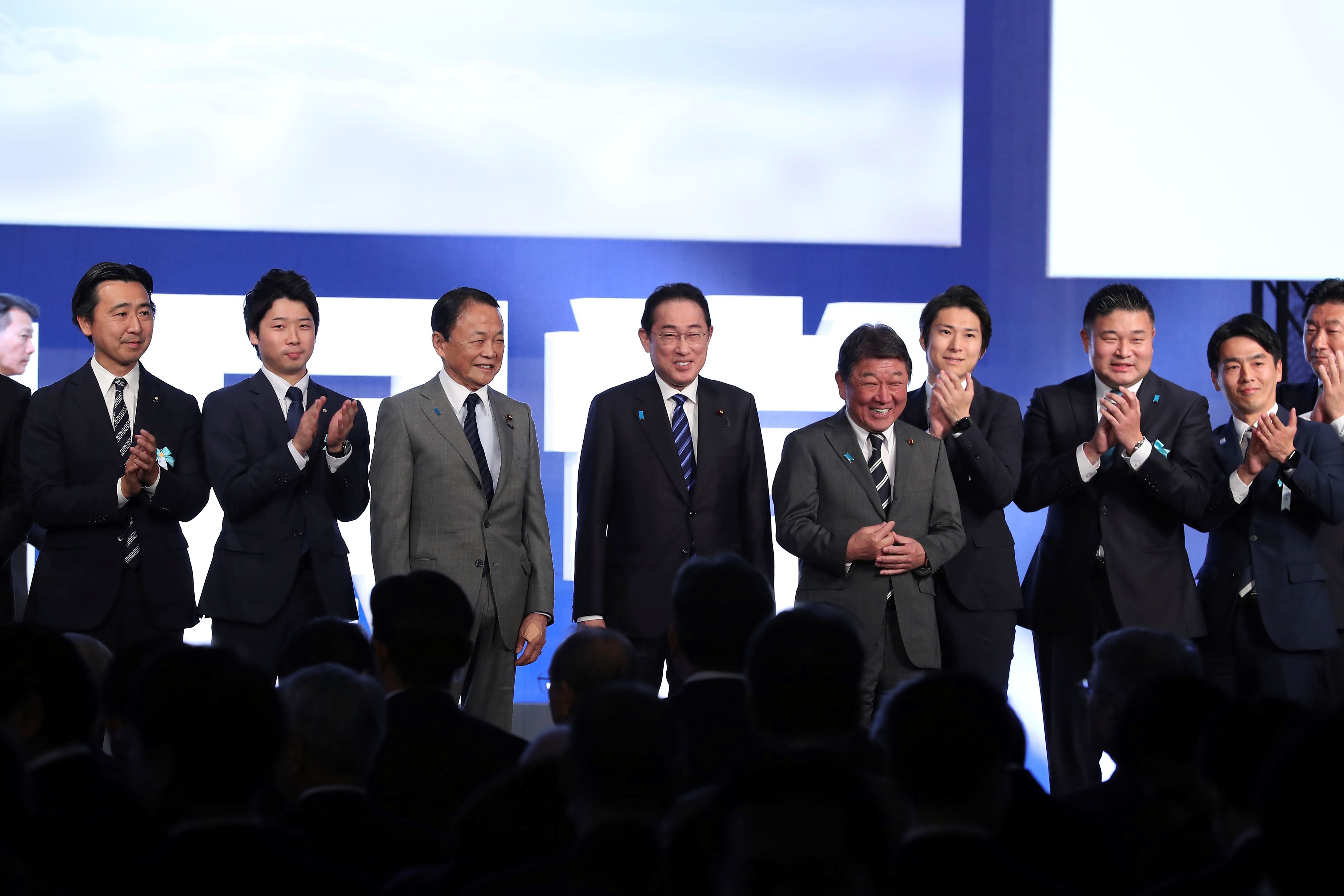
Japan’s ruling Liberal Democratic Party and its coalition partner Komeito are facing growing pressure to provide details on revising the political funds control law amid public outcry over a slush funds scandal involving certain LDP factions.
The ruling coalition’s proposal on the revision of the political funds control law did not specify the scope or method of disclosure for policy activity expenses nor the criteria for disclosing the information of ticket purchasers for party fundraising events, prompting opposition lawmakers to question their sincerity to revising the law.
The LDP has been under intense scrutiny following revelations that some of its factions had neglected to report portions of their income from fundraising events and created slush funds for their members.
It’s meaningless unless expenses are disclosed in a way that receipts are provided and it’s clear how the funds were used for activities. Otherwise, it becomes something that betrays the people.
Katsuya Okada, Secretary-General of Constitutional Democratic Party of Japan
Motohisa Furukawa, head of the Diet affairs committee of the Democratic Party for the People (DPP), criticized the ruling parties’ proposal. “It seems like a revision done just for show. It looks like an attempt to deceive,” he said.
READ MORE: Tokyo police raid political group over alleged election obstruction
Katsuya Okada, secretary-general of the main opposition Constitutional Democratic Party of Japan (CDPJ), slammed the LDP’s stance as “completely inadequate pseudo-reform”.
“It’s meaningless unless expenses are disclosed in a way that receipts are provided and it’s clear how the funds were used for activities. Otherwise, it becomes something that betrays the people,” Okada said.
He urged the ruling LDP-Komeito coalition to come up with a solid proposal and engage in discussions.
Depending on the LDP response, the opposition may consider submitting a motion of no confidence against Prime Minister Fumio Kishida’s cabinet.
ALSO READ: Kishida says no plan to dissolve Diet after by-elections loss
CDPJ President Kenta Izumi mentioned the potential for such a motion, based on an overall assessment of the LDP’s stance, following the LDP’s loss of all three seats in April’s Lower House by-elections.
Within Komeito, there is a growing consensus that discussions should be held between the ruling and opposition parties to create the amendment bill, especially on the handling of policy activity funds.
The CDPJ, DPP, Japan Innovation Party, and Japanese Communist Party have agreed on three points regarding the revision of the Political Funds Control Act. These are the introduction of a joint responsibility system to clarify politicians’ accountability, full disclosure of the usage of policy activity funds disbursed from political parties to lawmakers, and a ban on corporate and organizational donations.
READ MORE: Japan's ruling LDP loses 3 lower house seats in by-elections
A postal survey conducted earlier this year by The Asahi Shimbun, one of Japan’s largest daily newspapers, showed public outrage. Some 79 percent of respondents said that donations by companies and other organizations “should not be allowed because they might lead to interest-driven politics”, far exceeding the 15 percent who agreed that “political activities should be free, so such donations should be allowed”.
According to an opinion poll conducted by the Jiji Press news agency, public support for the LDP fell 2.4 percentage points to 15.3 percent in April
According to an opinion poll conducted by the Jiji Press news agency, public support for the LDP fell 2.4 percentage points to 15.3 percent in April. A majority of respondents, 56.4 percent, said they considered the LDP’s punishments for lawmakers involved in the slush funds scandal to be overly lenient.
During his first hearing on May 10 at the Tokyo District Court, Junichiro Matsumoto, the official in charge of accounting for the former Shinzo Abe faction of the LDP, generally admitted to the charges against him.
ALSO READ: Report: Japan's ruling LDP to ban conventional factions
Matsumoto, 76, stands accused of falsifying entries in the political fund reports spanning from 2018 to 2022 for the faction previously overseen by Abe, the late former prime minister.
Specifically, Matsumoto faces charges for omitting approximately 675 million yen ($4.3 million) in income derived from fundraising events and an equal amount designated as kickbacks to faction members. The indictment alleges a total unreported sum of about 1.35 billion yen.
Matsumoto is the first indicted defendant to stand before a court in this case. The scandal has led to indictments for a total of 10 individuals, including three current and former members of the Diet, Japan’s parliament.


